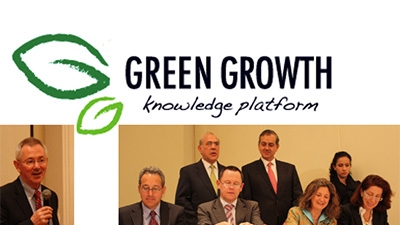Trade, Innovation and Green Jobs – Key Focus Areas
The conference provided opportunity for leading scholars, practitioners, and policy makers from developing and developed countries to help define a policy-informed knowledge agenda on green growth. Those taking part expressed greatest interest in exploring how green growth relates to trade and innovation.
On trade, the experience of developed countries suggests few negative impacts of environmental policy on competitiveness. There is an appetite for GGKP to document this fact more systematically, including in developing countries, and convey it to policy makers.
With respect to innovation, meanwhile, there is a strong need to better understand and facilitate the flow of non-frontier technologies in the developing world.
Participants also expressed great interest in the debate over green jobs, but agreement was lacking even on how to define a “green job.”
Perhaps most importantly, the conference undercut many of the traditional arguments against green growth.
“Policy makers often resist green growth policies because they fear destroying jobs, reducing competitiveness, and harming the poor,” said Marianne Fay, Chief Economist of the World Bank’s Sustainable Development Network. “The conference participants affirmed what we already suspected, namely that these concerns lack empirical grounding. Moving forward, in addition to mobilizing resources for research and fostering communities of practice, GGKP will take aim at the various myths that permeate the green growth policy debate.”
Launch of a Green Growth Knowledge Platform
The Green Growth Knowledge Platform (GGKP), formally launched at the conference, is a cutting edge global initiative to identify and address major knowledge gaps in green growth theory and practice. A Memorandum of Understanding on cooperating more closely on this agenda was signed by the Global Green Growth Institute, the Organisation for Economic Co-operation and Development, the United Nations Environment Programme, and the World Bank. Over time, the GGKP will facilitate ongoing interactions among researchers, practitioners, and policy makers to ensure its knowledge agenda remains responsive to the most pressing needs of client countries.
Next Steps for GGKP
Following the conference, the GGKP Advisory Committee met to discuss the proceedings and formulate its own recommendations for the priority knowledge agenda.
In addition to research on technology diffusion and the perceived obstacles to green growth, the Committee encouraged GGKP’s constituent institutions to harmonize their efforts on green growth performance indicators, building on previous and ongoing work by the OECD, UNEP, and the World Bank.
With this guidance in mind, the GGKP will soon convene expert committees to define specific lines of enquiry into these priority themes, engage with potential research funders, and continue to develop devises for virtual engagement with its communities of interest and practice.


